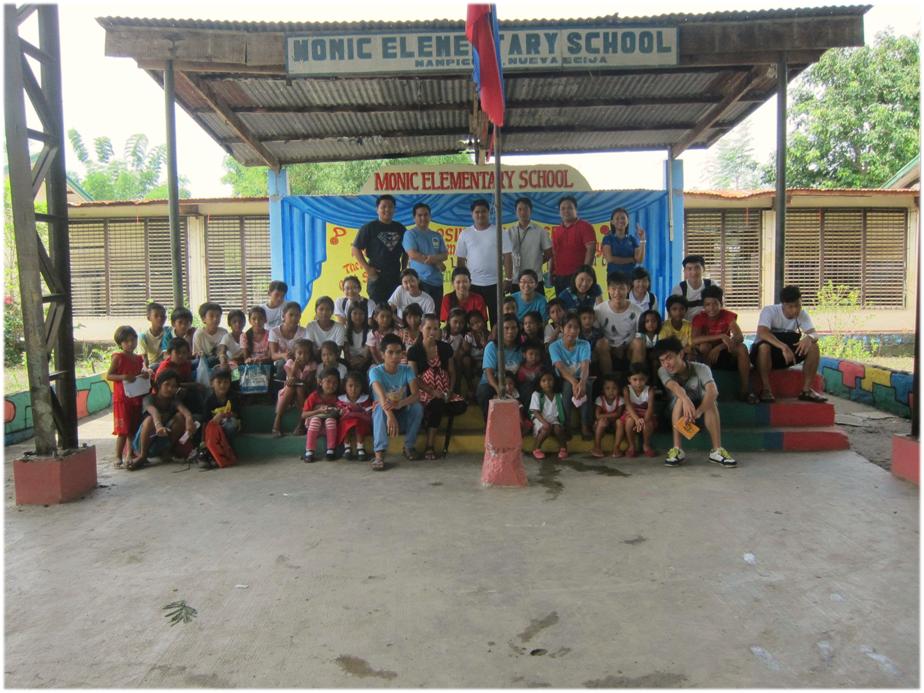For the student eager to give back to society, NUS has little shortage of community involvement projects to choose from. Indeed, from NUS’s flagship rotaract club to the various community service-oriented interest groups that have sprouted up over the years, students are spoilt for choice with the myriad of opportunities available. Those that receive the most attention, however, are arguably the Overseas Community Involvement Projects (OCIP). Often touted as platforms for participants to acquaint themselves with the culture of a foreign nation as well as engage that community through acts of service, the OCIPs cast a wide net that appeals to a significant proportion of students. The Youth Expedition Project (YEP) is one such example.
The YEP is currently administered by the National Youth Council (NYC), and was launched with the aim of encouraging volunteerism among youth to embark on community service-learning projects around ASEAN. Contingent with this aim is the NYC’s broader goal of developing a greater sense of social responsibility and community involvement both overseas and locally. The ethos of service learning centres around experiential learning, where the volunteer, through his or her acts of service, learns from the community he serves. The greatest value of the YEP is largely twofold: Firstly, it acts as a form of exposure, where participants are introduced to the expanse of possibilities available for community work in developing countries. Secondly, the personal development aspect of the programme would ostensibly result in more individuals feeling drawn to the idea of serving in society. While generally successful on these fronts, one is led to consider how the vast majority of OCIPs, including the YEP, do not sufficiently provide for the individual keen on studying the topic of development at a deeper level. Given the number of OCIPs that conduct their projects in foreign developing nations, it is not difficult to see why creating opportunities for studying development might be a valuable pursuit.

A group of NUS students noticed this void, and in 2010 pioneered the Builders Connect (BC) Learning Programme with the University Scholars Programme based on the philosophy that meaningful development or community service requires an understanding of the complexities inherent in the interdisciplinary field of the developing world. The BC Learning Programme comprises three stages: a pre-trip component which includes talks on the history and culture of the Philippines, talks by non-governmental organizations (NGOs), as well as introductory lectures on social research and topics relating to developmental studies. The trip component, which sees participants travelling to the Philippines to interact with the various stakeholders in the development process, ranging from surveys at the villages to interviews at the offices of the NGOs. Finally, the post-trip component requires individuals to submit a report detailing critical observations and learning points, along with a presentation to share these experiences with the greater community.
In interacting with participants of the programme, one recurring thought that comes to mind is just how complex the field of development is. Issues of sustainability have long plagued organizations that have adopted the format of working with short-term teams. The impact of what multiple batches of small groups is usually limited. To further complicate matters, the cultural climate in each country is profoundly different, and the relationships between the various stakeholders difficult to monitor and manage. Only on pausing to reflect on the complexity of the situation does one begin to appreciate how development is not a simple equation of injecting money with proportionate societal gain. Take for example, the instance of an NGO intervening and providing their target village with food staples over the course of a year. While this may seem to aid in alleviating poverty in the area, such a move may end up upsetting the societal equilibrium—through inhibiting the local economy for produce, for instance—to the ultimate detriment of the village.
Only on pausing to reflect on the complexity of the situation does one begin to appreciate how development is not a simple equation of injecting money with proportionate societal gain…it is crucial that each group intending to serve these communities should first strive to understand the socio-economical mechanisms at work.
A delicate balance therefore exists between administering aid and leaving the community to manage its own affairs, and it is crucial that each group intending to serve these communities should first strive to understand the socio-economical mechanisms at work. Evidently, aid provided in ignorance might very well end up doing more harm than good. The BC learning programme’s intention of placing students at the heart of the NGOs’ operations allows them the chance for close interaction with the organizations’ staff, in ways that engender appreciation of the staggering complexity that surrounds developmental work. If anything, it appears that growing in subject knowledge has the curious paradoxical effect of revealing just how little we really know about the field of development. This is however, not a cause for disappointment, but instead, a wakeup call to realize the importance of furthering opportunities for developmental study.
The cultivation of interest in national and international development should certainly not be neglected, and for this reason the numerous OCIPs available now have not, in any appreciable sense of the word, failed. However, if we were to stop there and ignore—instead of supporting and encouraging—the growth of programmes such as the BC Learning Programme, then we as a university would truly have failed; for what is a university if not a place for promoting inquiry and the pursuit of greater knowledge? Since its inception two years ago, the BC learning programme has seen its ex-participants moving into internships at other NGOs to further their inquiry into developmental studies, and the number of applicants each year continues to climb. Clearly, there exists a hunger amongst students to explore the field of development, and, as a university, there is still much that can be done in terms of providing opportunities to do so.


